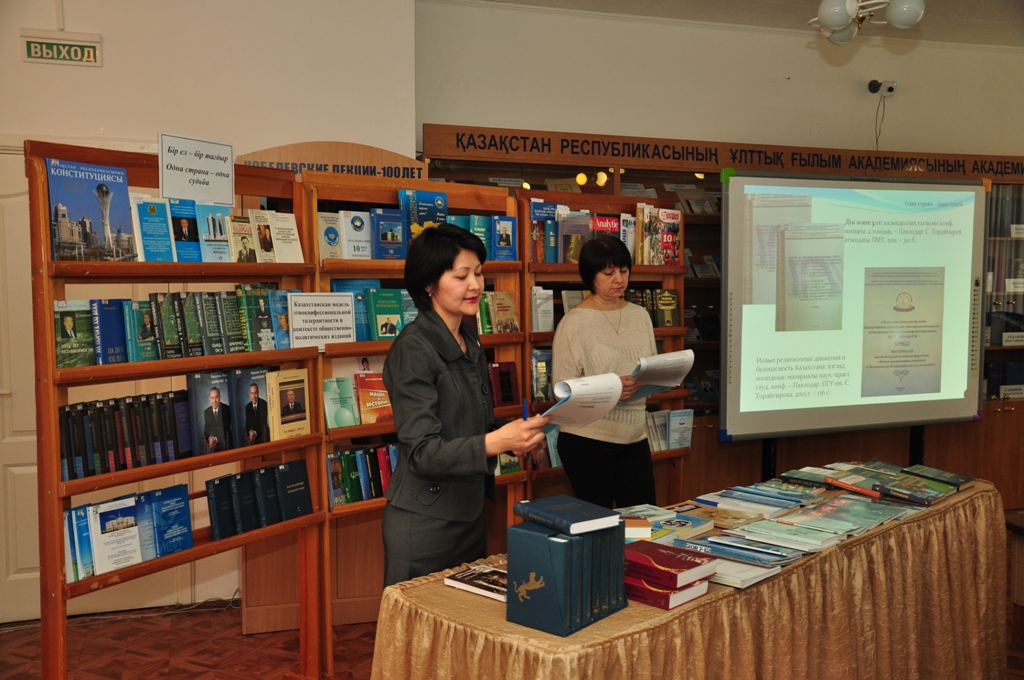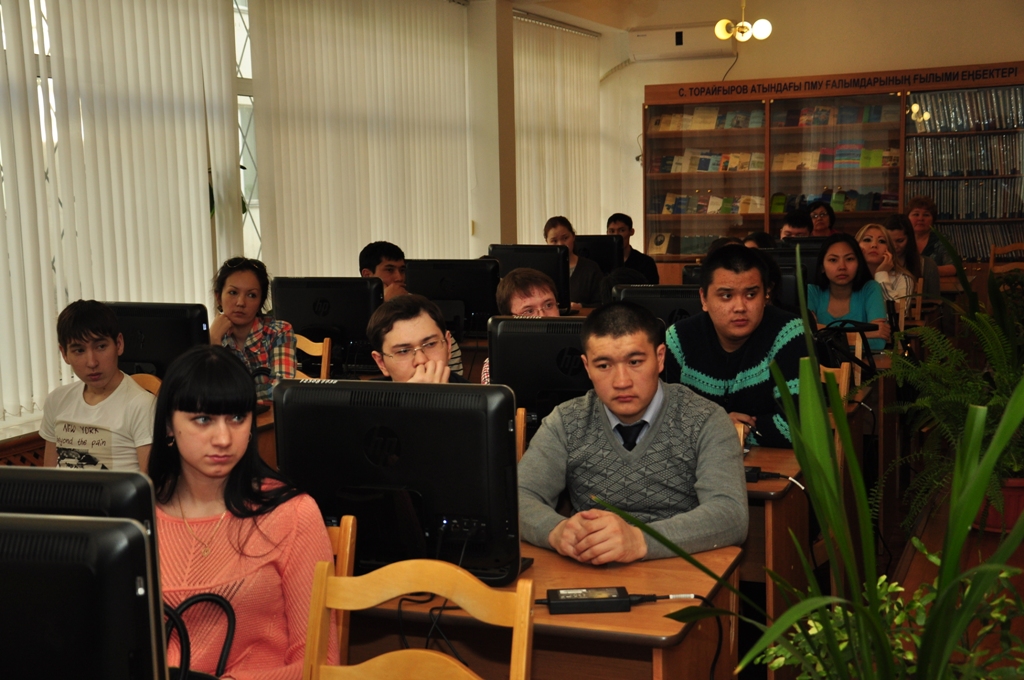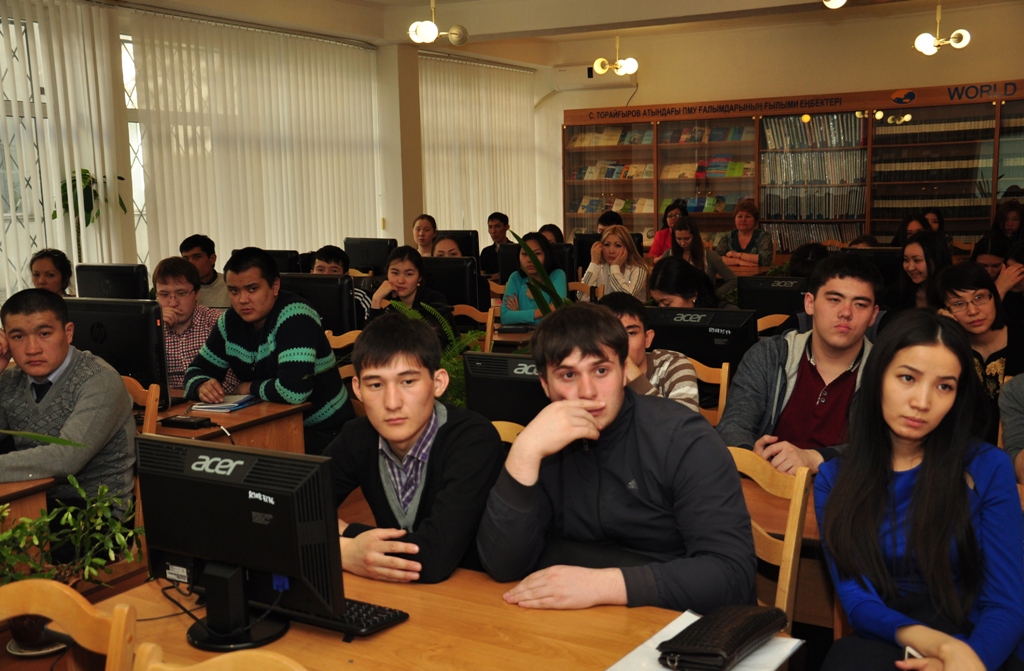A bibliographic review of the literature and a book exhibition on Kazakhstan's Model of Ethno-Confessional Tolerance in the Context of Socio-Political Publications was held in the reading hall of S. Beysembayev Scientific Libarary of S. Toraighyrov PSU on March 28, 2014.
 |
|
 |
 |
The event was held by the Head of the Department of Scientific Literature Gulzhan Amanova and member of the reading hall Irina Gavrilenko under the Bilim+ project which aims to improve religious literacy of PSU students in the context of the objectives set out in the Address by the President of the Republic of Kazakhstan N.A. Nazarbayev to the People of Kazakhstan 'Kazakhstan-2050 Strategy: a New Political Course of the Established State'.
Throughout the period of its independence, Kazakhstan has managed to preserve interethnic stability, consolidation of society, prevent any conflicts and promotion of ideas that might separate peoples and ethnic groups living on its territory. A major contribution to this stability has been made by the state policy of our country, especially formation of the legal framework for ensuring exercise of the right to freedom of conscience. Without a package of laws that take into account the interests of all ethnic groups and national interests, it would have been impossible to build and strengthen interethnic harmony and civil peace in the country. Kazakhstan has adopted a number of laws and programs that helped shape up the religious image of our country. First of all, this is the Law of the Republic of Kazakhstan on Religious Activities and Religious Associations dated October 11, 2011.
The State Program for Combating Religious Extremism and Terrorism in the Republic of Kazakhstan for 2013-2017 adopted on October 2, 2013, and an action plan for implementation of this program have become another important tool for implementation of the Kazakhstan-2050 Strategy.
The works by our President N.A. Nazarbayev, which were also presented at the exhibition held in S. Toraighyrov PSU, help define and implement the right direction of the national policy in our country.
Interreligious harmony in Kazakhstan is impossible without ethnic harmony, as behind every religion there are ethnic communities professing that religion.
Specific aspects of ethnic and religious spheres of social life are among the most topical theoretical and practical problems of our time. Therefore, they are always in the center of attention of scientists, politicians and public figures of Kazakhstan.
Many scientific papers, monographs, textbooks and teaching guides by the leading scientists of Kazakhstan were presented at the bibliographical review, during the book exhibition and electronic presentation.
These are the works by experts from Kazakhstan Institute for Strategic Studies under the President of the Republic of Kazakhstan, the Institute of Philosophy, Political Science and Religious Studies of the RK MES committee, the Institute of History of the State, as well as works by some public figures and state officials, such as S.A. Dyachenko, Academician Garifolla Yesim, leading researchers in the field of religious studies: Absattar kazhy Derbisali, Supreme Mufti Yerzhan kazhy Malghazhyuly, A.G. Kosichenko, M.S. Orynbekov, A.I. Artemyev, etc. Some works of PSU members were also presented at the exhibition, namely, monographs by Doctor of Political Sciences, Professor A.A. Akishev, Doctor of Political Sciences, Professor G.N. Irenov, G.M. Razdykova, Candidate of Historical Sciences, Associate Professor M.Zh. Kozhamzharova, Candidate of Philosophical Sciences, Master of Philosophy, Associate Professor N.S. Tyshkanova, Master of Philosophy, as well as proceedings of all conferences on religion held in S. Toraighyrov PSU.






